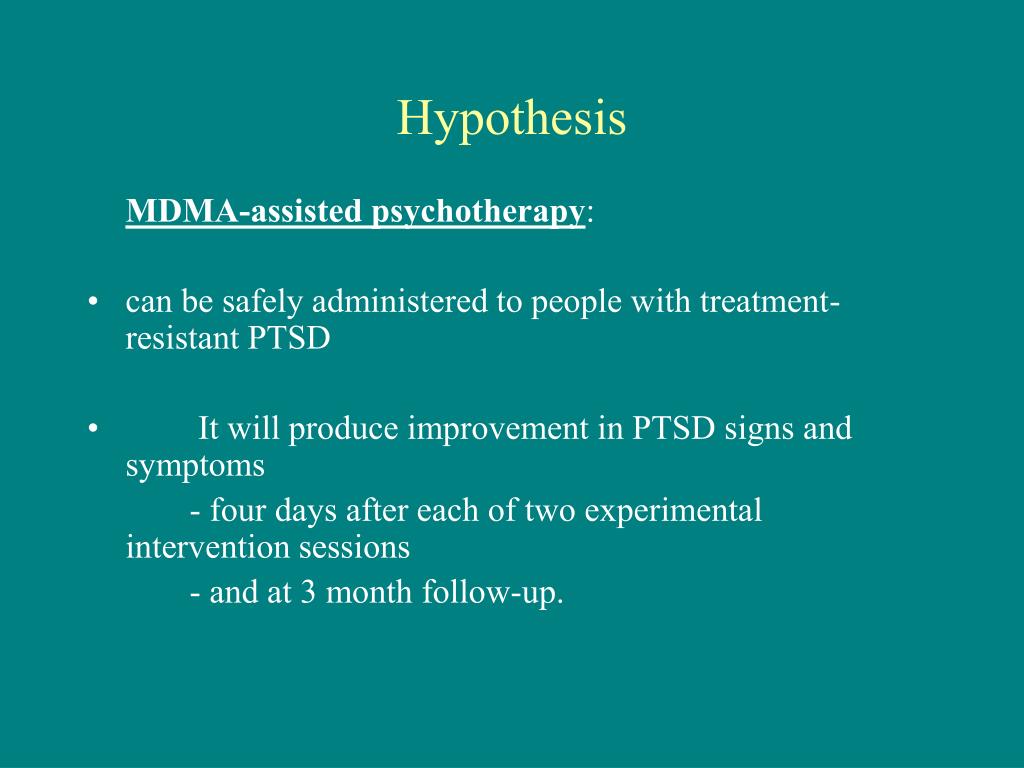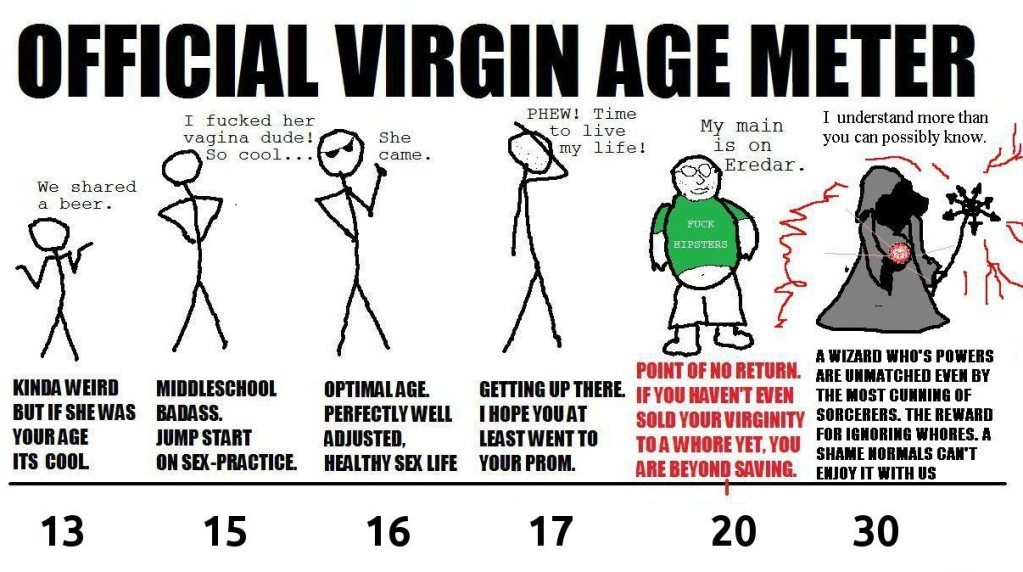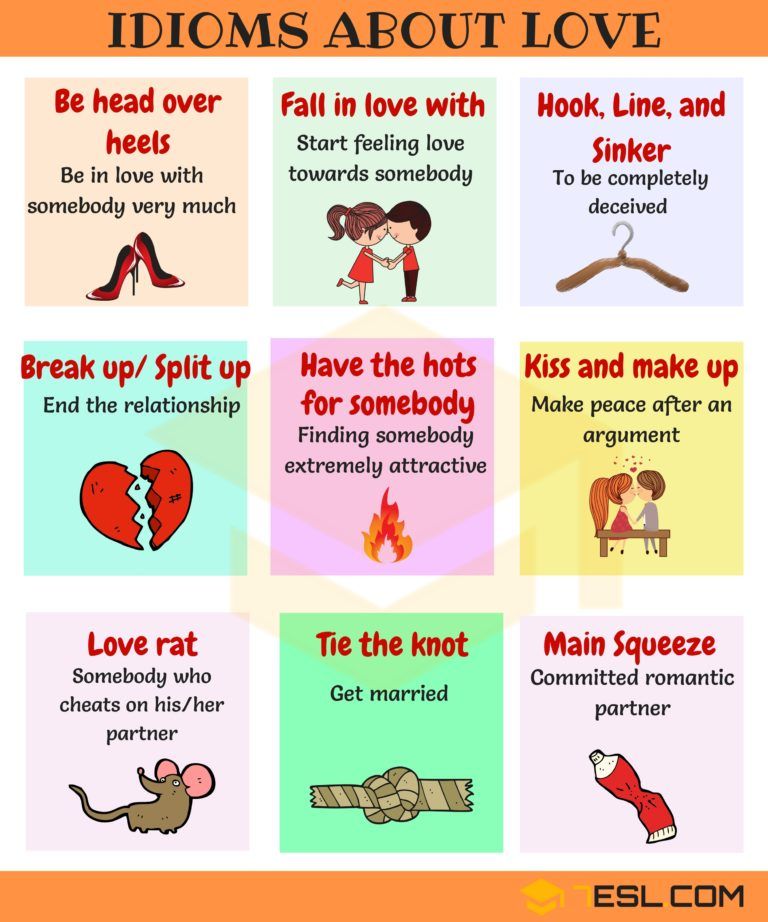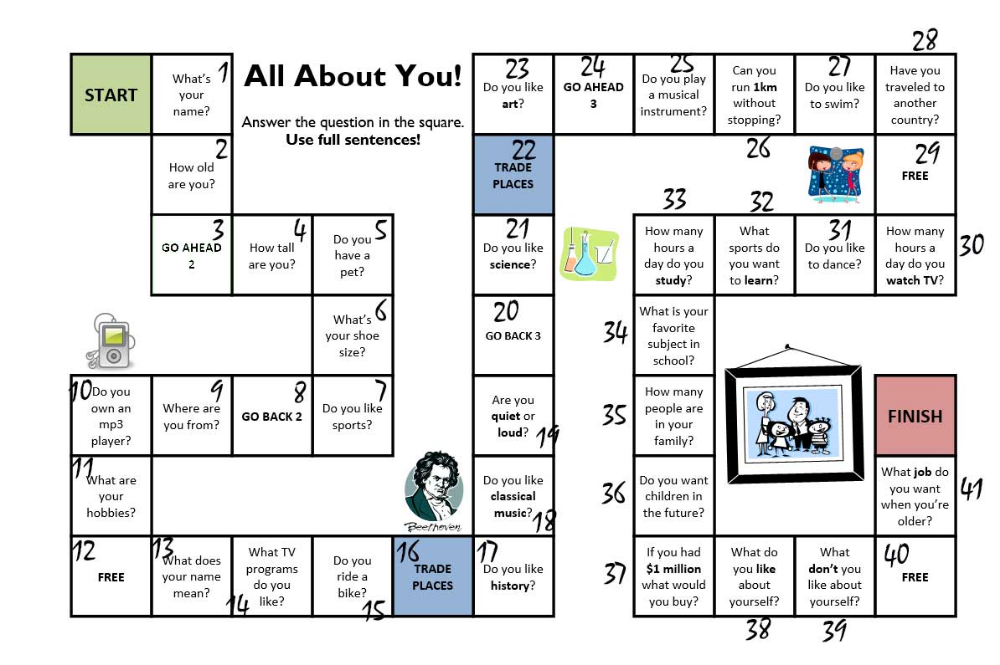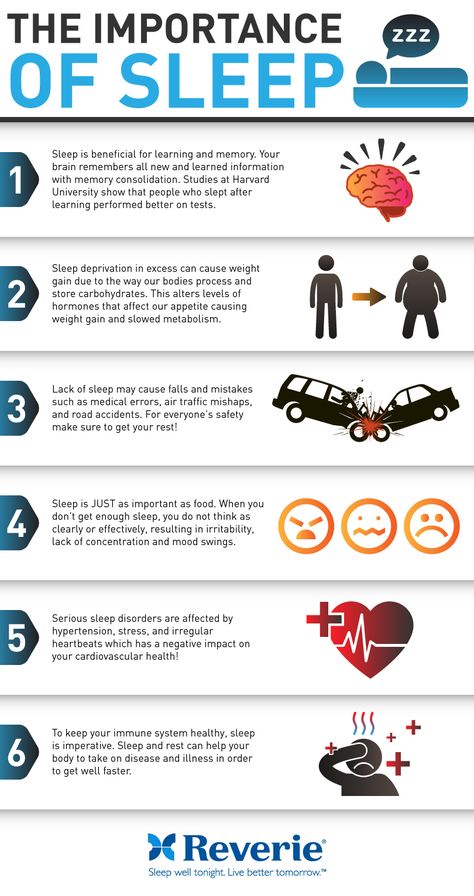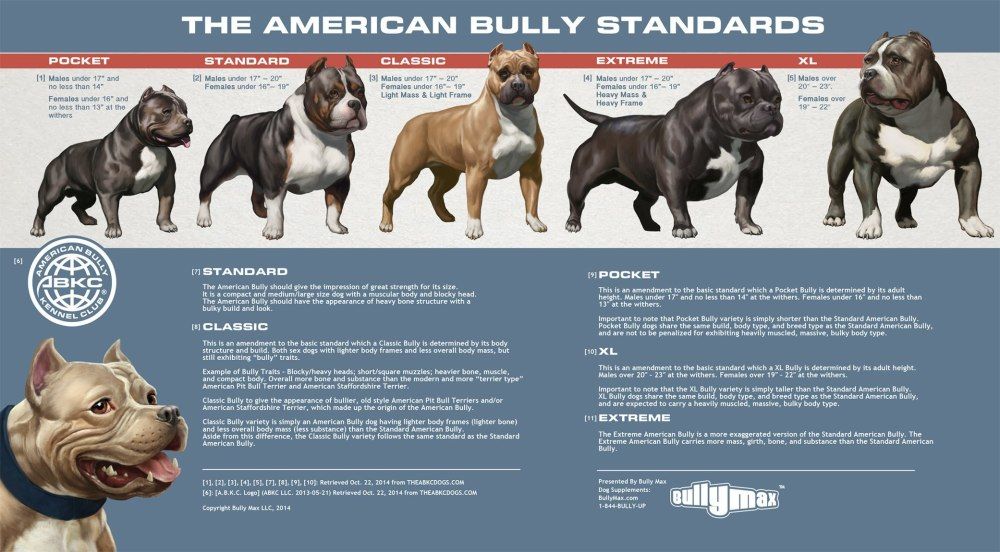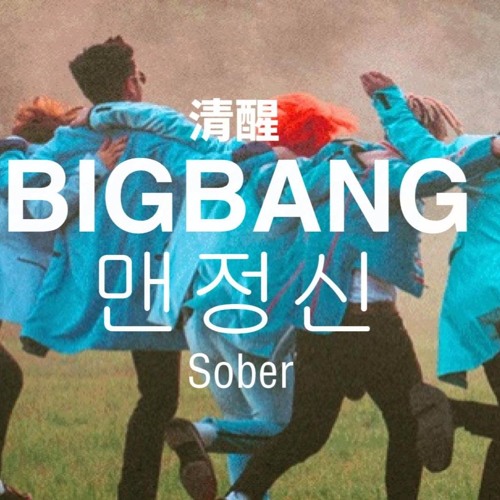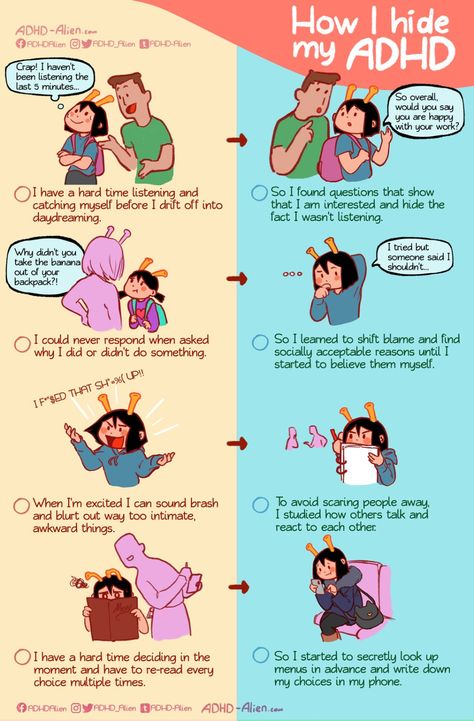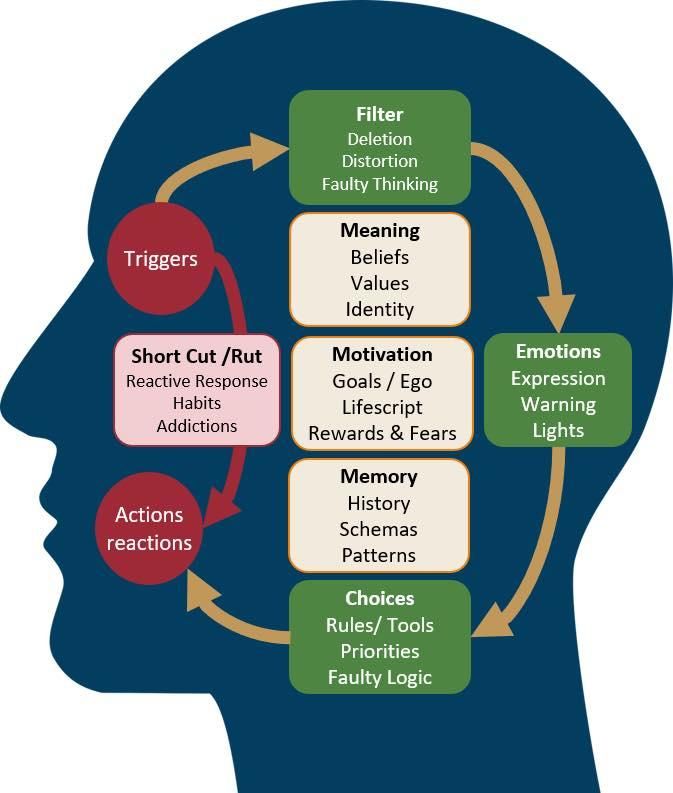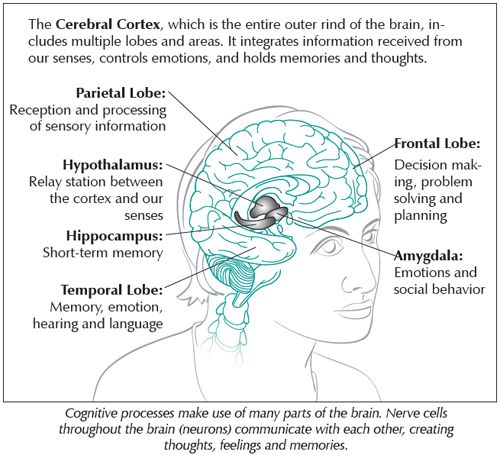Mdma treating ptsd
Australia to allow MDMA-assisted therapy for PTSD
Australia has moved to recognise MDMA as a medicine for the treatment of post-traumatic stress disorder (PTSD).
From July 1, 2023, medicines containing MDMA can be prescribed by authorised psychiatrists to those experiencing PTSD. The change also allows medicines containing psilocybin (magic mushrooms) to be prescribed for people with treatment-resistant depression.1
Here we explore the therapeutic benefits of MDMA in treating PTSD.
To read more about the therapeutic benefits of psilocybin, visit our article: Magic mushrooms as medicine.
MDMA and PTSD
MDMA (or 3,4-methylenedioxymethamphetamine) is an empathogen drug. This means it can increase feelings of:
- empathy and kindness
- social acceptance
- connection to others.2
MDMA was first manufactured in the early 1900s to help control bleeding.
It became more commonly used in the 1970s and early 1980s by some psychiatrists to help in the treatment of PTSD. 3 Around this time MDMA also started being used as a recreational drug in the party/rave scene.4
PTSD affects around 5-10% of Australians at some point in their lives.5, 6
People can develop PTSD after experiencing a traumatic event, making them fear for their life or safety, or for those around them.
Symptoms can include:
- ongoing flashbacks or distressing reminders of the event
- dreams or nightmares about the event and difficulty sleeping
- feelings of anger, guilt or shame
- increased use of alcohol and other drugs.7
Read more about PTSD.
Current research on MDMA and PTSD
Research into the use of MDMA as a therapeutic drug stopped in the mid-1980s when the USA made it illegal, despite protests from researchers and health professionals.
Clinical research picked up again with a study published in 2010, and after successful clinical trials showed huge improvements in PTSD symptoms.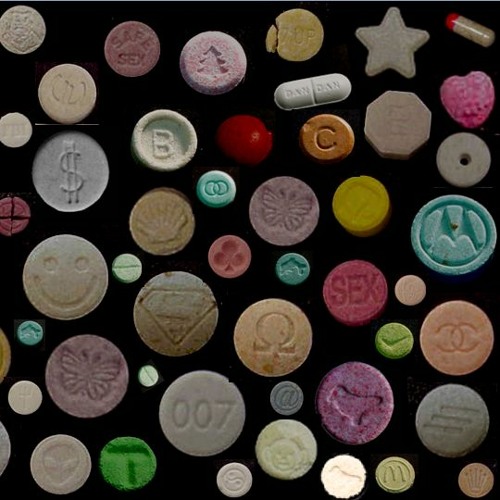 Then, in 2017 the US recognised MDMA as a breakthrough therapy.8
Then, in 2017 the US recognised MDMA as a breakthrough therapy.8
Clinical trials are now being run across 15 locations in the USA, two in Canada, and three in Israel.9
Follow-up research has found MDMA-assisted treatment effective in improving PTSD symptoms.3 At least one year later, 67% of participants surveyed no longer met the criteria for a PTSD diagnosis.3
The first clinical trial in Australia was announced in 2020, and a number of others have commenced and been completed since.
The results of clinical trials, extensive public consultation, an expert panel report, and advice from the Advisory Committee on Medicines Scheduling has led to the TGA deciding to reschedule MDMA.10
How does MDMA help PTSD?
It’s important to note that MDMA alone doesn’t treat PTSD, and research doesn’t suggest it’s a ‘cure’.
What MDMA does is help the process of psychotherapy.11, 12
MDMA can assist psychotherapy by reducing defensiveness and anxiety, increasing relaxation and improving mood.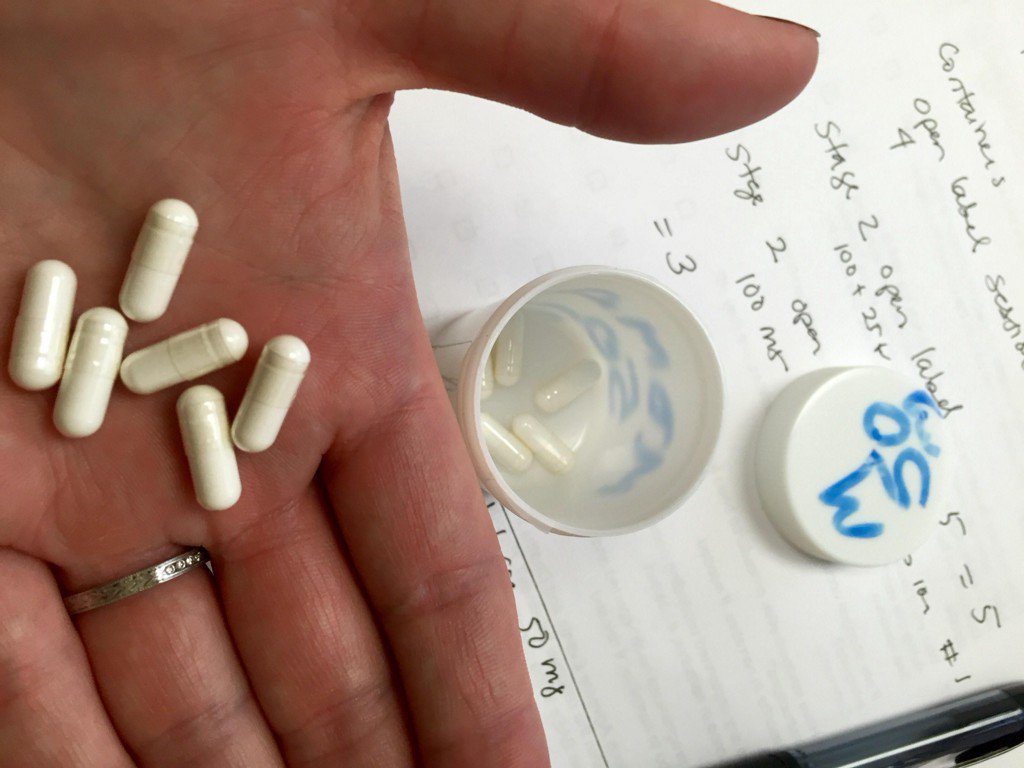 It can also increase the bond between the therapist and patient.11
It can also increase the bond between the therapist and patient.11
This may enable someone to revisit traumatic memories and work through their emotions without being re-traumatised, or finding the associated anxiety or fear too overwhelming.11
Because MDMA appears to reduce anxiety associated with recalling traumatic experiences, it can also help increase insight and memory. Negative memories may feel less confronting, allowing the therapist and patient to have sessions without the patient becoming overly anxious.11
Is clinical MDMA different than recreational MDMA?
MDMA for clinical use is produced to a pharmaceutical standard like any other medication used to treat mental health. The purity and strength of the dose is known, and it is given in a controlled and safe setting by a trained health professional during a therapy session.13
On the other hand, illicit MDMA pills (also known as ecstasy), powders or crystals are not regulated, and the purity and strength are unknown.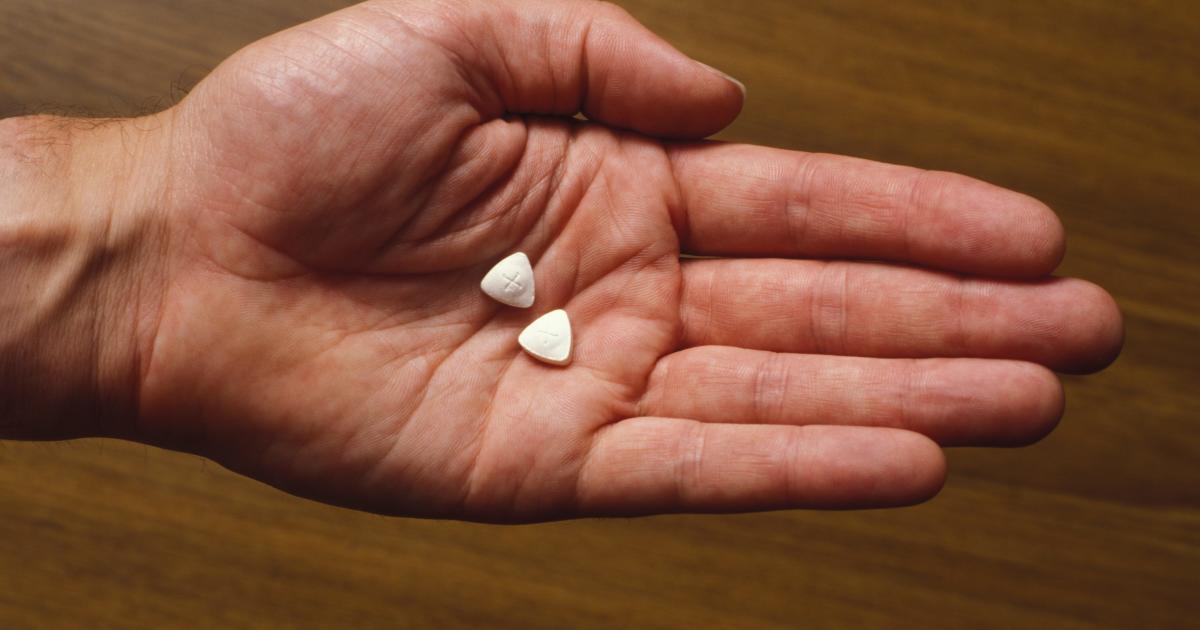
And in many cases, these substances are sold as MDMA despite only having a small amount of MDMA in them, or none at all. Other drugs and ‘fillers’ are often used instead, making the effects more unpredictable and increasing the likelihood of negative reactions.13
How to access MDMA-assisted therapy for PTSD
From July 1, 2023, if a general practitioner (GP) thinks that MDMA-assisted therapy may be an appropriate treatment option, they can refer you to a psychiatrist who is an authorised prescriber.
But this will likely be a very small number of psychiatrists to begin with, and your GP might not know of available psychiatrists.
If you’re not able find a GP who can refer you, other options are:
- participate in a clinical trial. To see if there are any clinical trials recruiting, check this page here: Australian Clinical Trials | Australian Clinical Trials.
- contact Mind Medicine Australia for further information.
For more info on the regulation change and access requirements visit: Re-scheduling of psilocybin and MDMA in the Poisons Standard: questions and answers | Therapeutic Goods Administration (TGA)
MDMA-assisted therapy for PTSD shows promising results
CBS Evening News
By Jon LaPook
/ CBS News
Can psychedelic therapy help treat PTSD?
Can psychedelic therapy help treat PTSD? 02:11Devastated by post-traumatic stress disorder, Jonathan Lubecky tried to take his own life in 2006.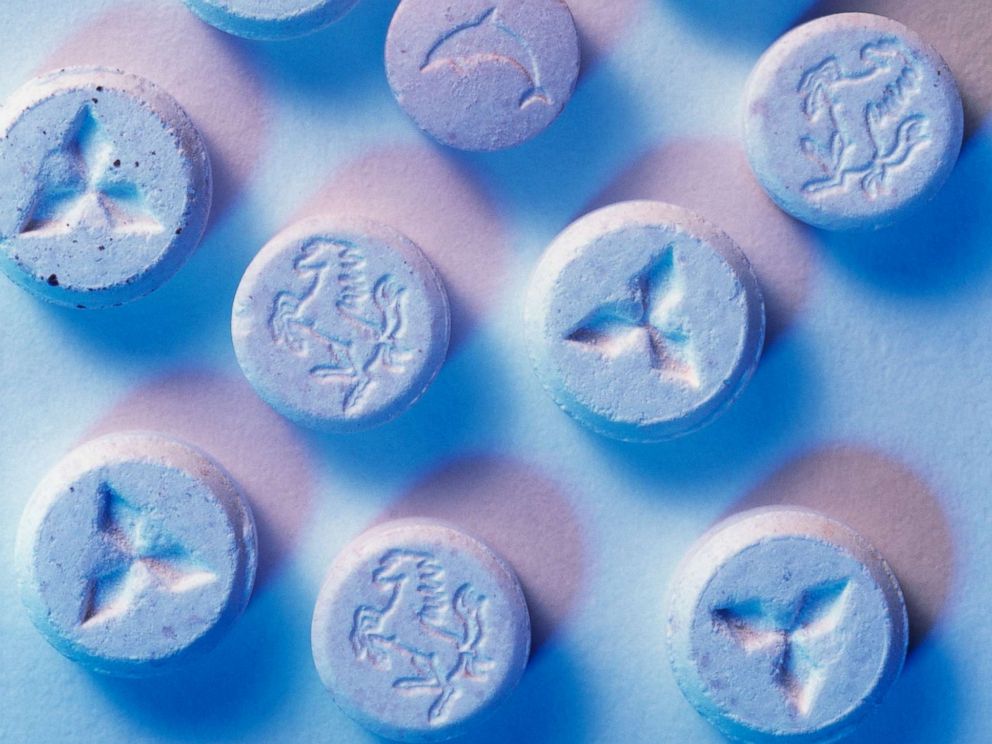
"I put a loaded nine-millimeter to my temple, and I pulled the trigger," he said. "That was the first suicide attempt that I had. I've had a total of five."
After his last attempt in 2013, the Iraq War veteran began participating in a clinical trial of MDMA — the active ingredient in ecstasy — during sessions with specially trained therapists.
"MDMA mutes the amygdala, which is your fight or flight response," Lubecky said. "Your emotions stay in this happy medium range that they need to be in for the therapy to work."
Lubecky says he's now living a life free from PTSD.
"I feel normal again," Lubecky said. "My world changed. This therapy is the sole reason that my son has a father instead of a folded flag."
Research organization MAPS Public Benefit Corporation first began clinical trials of MDMA for PTSD in 2003. It announced the findings of its latest trials this month.
"88% of the people, had clinically significant decrease in their PTSD symptoms," said MAPS PBC CEO Amy Emerson.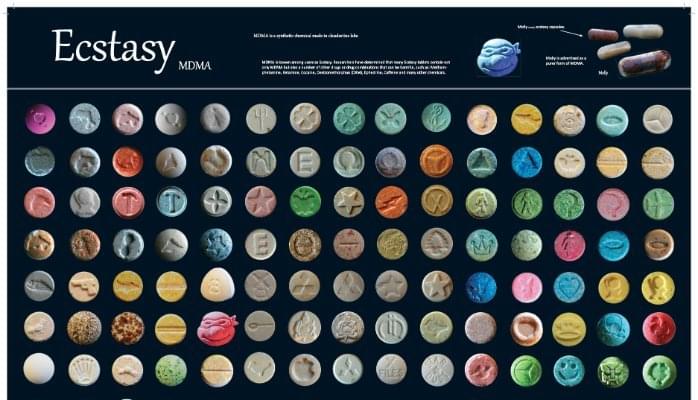 "67% of them lost their PTSD diagnosis."
"67% of them lost their PTSD diagnosis."
MAPS PBC plans to submit its latest results for publication, and, later this year, ask the Food and Drug Administration to approve MDMA as a prescription medication, in combination with therapy.
In response to potential backlash over the use of ecstasy, a lead researcher in the study said it is being administered in a controlled environment.
"It's being administered in a very particular manner by people that are quite well trained," said Jennifer Mitchell, MAPS PBC principal investigator, and a professor at the University of California, San Francisco. "We are not suggesting that anyone try this on their own at home, in their living room."
Lubecky is finishing his third humanitarian mission to Ukraine after undergoing the treatment.
"Everyone said PTSD can't be cured," he said. "I'm living proof that that isn't true."
If you or someone you know is in emotional distress or suicidal crisis, call the Suicide & Crisis Lifeline at 988, or 1-800-273-TALK (8255).
Service members, veterans and their friends and family who need help can also call the Military Crisis Line at 800-273-8255 (press 1 for assistance), or text 838255. The Veterans Crisis Line is 800-273-8255.
Trending News
- In:
- PTSD
- Food and Drug Administration
Jon LaPook
Dr. Jonathan LaPook is the chief medical correspondent for CBS News.
First published on January 13, 2023 / 7:18 PM
© 2023 CBS Interactive Inc. All Rights Reserved.
Thanks for reading CBS NEWS.
Create your free account or log in
for more features.
Please enter email address to continue
Please enter valid email address to continue
The effect of MDMA therapy for PTSD persisted for a year
The positive effect of MDMA therapy against post-traumatic stress disorder (PTSD) persisted one year after the end of treatment.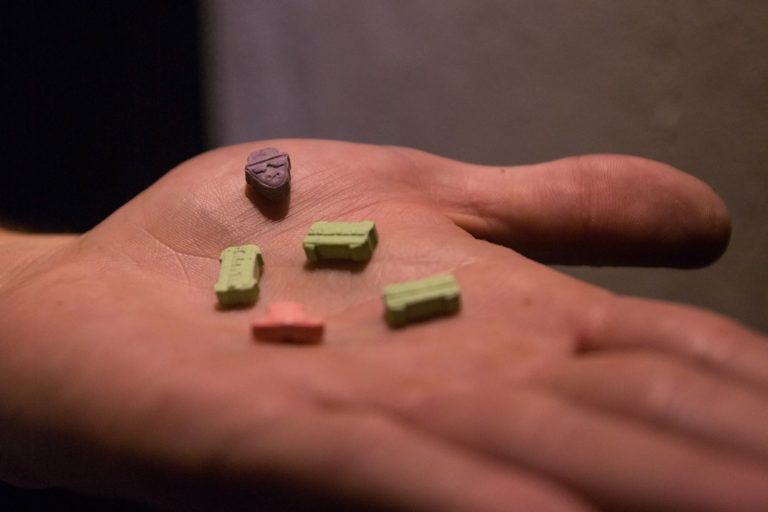 This conclusion was reached by American researchers who analyzed the results of all six phase II therapy trials: by the end of treatment, 56 percent of participants did not meet the criteria necessary for diagnosing PTSD, and a year later they were already 67 percent. Article published in journal Psychopharmacology .
This conclusion was reached by American researchers who analyzed the results of all six phase II therapy trials: by the end of treatment, 56 percent of participants did not meet the criteria necessary for diagnosing PTSD, and a year later they were already 67 percent. Article published in journal Psychopharmacology .
Full-scale clinical trials of MDMA as a treatment for PTSD were approved in the United States in 2016, and a year later it was given "breakthrough therapy" designation, a label usually given to drugs and treatments that are planned to be introduced into medical practice on an accelerated basis. Since then, research on the effectiveness of therapy has continued: clinical trials have not yet been completed, so the treatment is not yet used in psychotherapeutic practice: however, in January it became known that 50 people with severe PTSD had already been prescribed MDMA therapy - they are in the final phase of trials, however , will not be included.
In particular, it is not yet completely clear whether the effect of such therapy is maintained in the long term: this is only confirmed by the results of the very first clinical trial, in which participants did not report the return of symptoms of the disorder within a year and a half after successful therapy. Lisa Jerome of the Multidisciplinary Association for Psychedelic Research (MAPS), which conducts and sponsors research on MDMA therapy in the US, and her colleagues decided to pool the long-term results of all six Phase II clinical trials, which were conducted from 2004 to 2017 in the US, Canada, Switzerland and Israel and included 107 participants.
Lisa Jerome of the Multidisciplinary Association for Psychedelic Research (MAPS), which conducts and sponsors research on MDMA therapy in the US, and her colleagues decided to pool the long-term results of all six Phase II clinical trials, which were conducted from 2004 to 2017 in the US, Canada, Switzerland and Israel and included 107 participants.
MDMA therapy is not limited to taking the substance, but includes several long (up to eight hours) psychotherapy sessions in which ecstasy itself acts as an intermediary and helps patients communicate with a specialist. In the clinical trials conducted, participants took MDMA first before an hour and a half psychotherapy session, and then before two eight-hour sessions (a month passed between them). Progress in the treatment of PTSD was assessed using a standardized symptom identification questionnaire: participants filled it out before starting therapy, after it ended, and one year later. 9 people took part in the last survey1 person.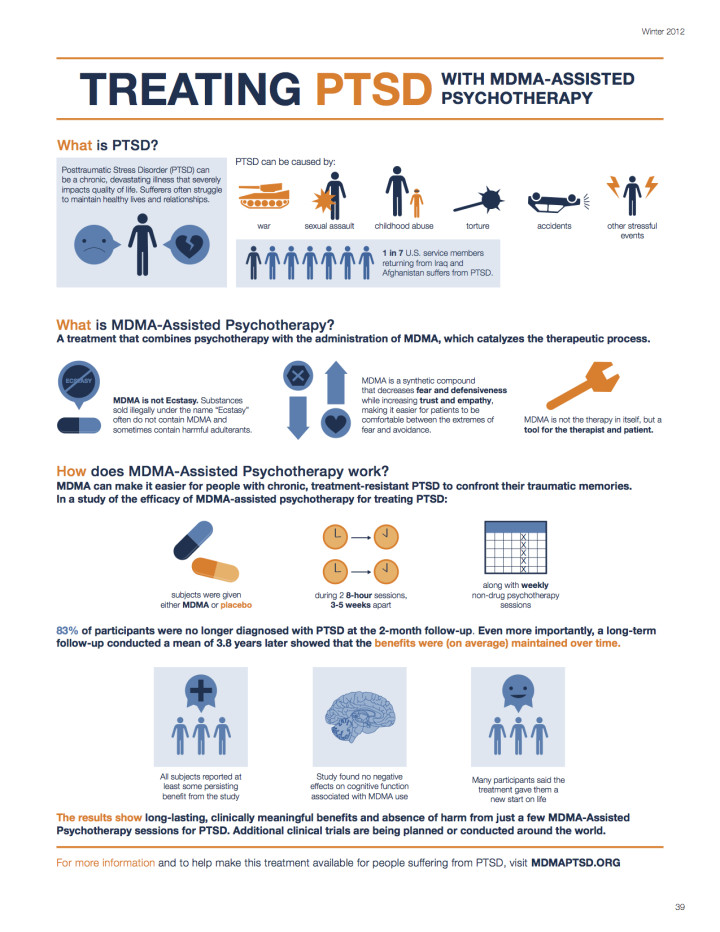
According to diagnostic surveys, the therapy was actually effective, with participants in all studies experiencing fewer PTSD symptoms than at baseline (p < 0.001). A year later, the effect persisted, and the number of symptoms also turned out to be lower compared to the survey at the end of the trials themselves (p < 0.05). By the end of the clinical trial itself, 56 percent of the participants no longer met the criteria for a diagnosis of PTSD; a year later they were already 67 percent.
Scientists have concluded that the effect of MDMA therapy persists for at least a year and, apparently, in the long term, already without therapy as such, positive dynamics can also be observed. Now, however, it is necessary to wait until the end of phase III trials, which include more patients, and see if a similar positive trend is observed in them.
Clinical trials of MDMA therapy are not limited to the US: three years ago, the therapy was approved in the UK for the treatment of alcohol dependence.
Elizaveta Ivtushok
Found a typo? Select the fragment and press Ctrl+Enter.
PTSD in American soldiers will be treated with ecstasy
Archive NEWSru.com
ALL PHOTOS
American soldiers who have been psychologically traumatized fighting in Iraq and Afghanistan will be able to receive "ecstasy therapy" to help them free themselves from bad memories and nightmares.
The US Food and Drug Administration (FDA) has approved the inclusion of soldiers in an experiment to see if MDMA, the active ingredient in ecstasy, can treat post-traumatic stress disorder.
The South Carolina scientists who initiated the experiment believe that the feeling of emotional closeness reported by ecstasy users could help soldiers share their experiences with doctors. The study began last year, but initially only rape and sexual abuse victims with post-traumatic stress syndrome took part.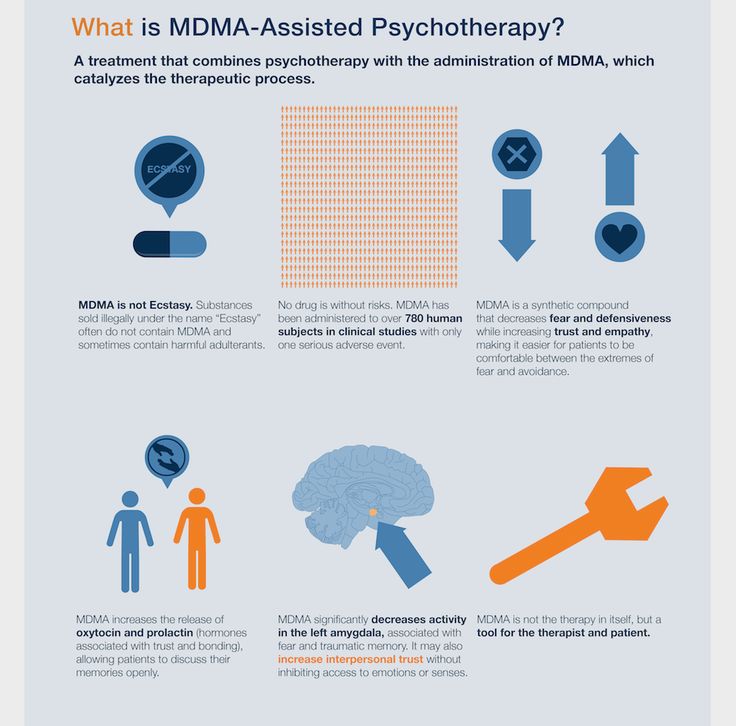
Michael Mitheufer, the psychiatrist who is leading the work, says the new experiment "looks very promising," writes The Guardian (translated from Inopressa.ru ).
"It's too early to draw any conclusions, but the results of these treatments are encouraging," he says. "People are being able to make deeper emotional connections now that they're safe."
He intends to call for veterans of the war who have fought in the past five years to join the project. According to the US National Center for the Study of Post-Traumatic Stress Syndrome, up to 30% of the military suffer from it.
During the First World War, this condition was called "military neurosis", during the Second World War - "combat mental trauma." This condition is characterized by painful flashbacks, panic attacks, and attempts to avoid situations that may cause patients to turn to their military experience.
According to Dr. Miethuifer, MDMA helps people talk about traumatic situations without fueling anxiety. "This substance acts as a catalyst to help people overcome whatever has been blocking the success of their treatment."
"This substance acts as a catalyst to help people overcome whatever has been blocking the success of their treatment."
The methods of drug treatment used today involve eight-hour sessions during which music is played. Patients swallow a capsule containing either 125 mg of MDMA (about the same amount as a regular ecstasy tablet) or a placebo. Psychologists examine patients before and after procedures to see if the drug helped.
Animal studies suggest that MDMA lowers serotonin levels in the brain.
This study has generated controversy because the long-term effects of ecstasy use have not yet been fully identified. In particular, research in this direction is opposed by some politicians and campaigners against drugs, who argue that studying the possible medical benefits of using illegal drugs gives a false impression of them.
The scientific experiments in South Carolina mark a resurgence of interest in the controlled use of psychedelic and hallucinogenic drugs.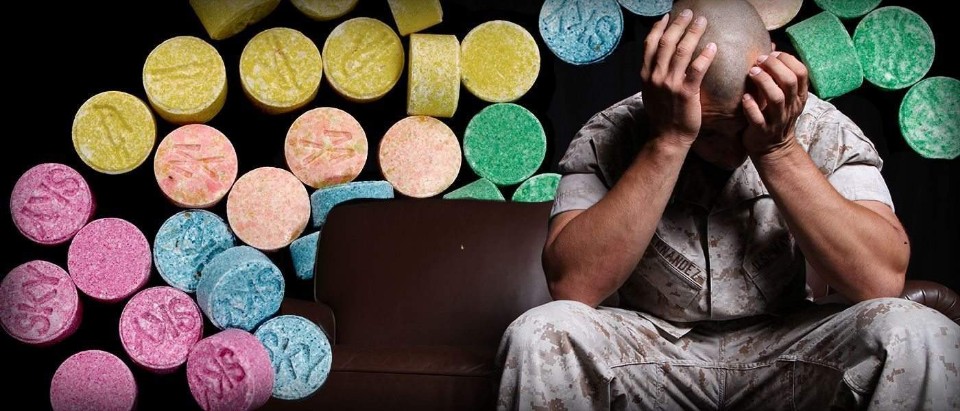 More research will be done in the US on the medicinal properties of MDMA, LSD and psilosin, the active ingredient in hallucinogenic mushrooms, which may help treat conditions such as obsessive-compulsive disorder and anxiety in cancer patients.
More research will be done in the US on the medicinal properties of MDMA, LSD and psilosin, the active ingredient in hallucinogenic mushrooms, which may help treat conditions such as obsessive-compulsive disorder and anxiety in cancer patients.
Note that a similar experiment has recently begun in Israel , however, Israeli scientists chose a milder drug to treat stress. Fighters who fought in the Palestinian territories will be given marijuana as an experimental stress reliever.
As part of the pilot program, the psychoactive component of marijuana, Delta-9 tetrahydrocannabinol, will be administered to 15 soldiers suffering from PTSD.
The leader of the experiment, Raphael Mehulam of the Hebrew University of Jerusalem, claims that a chemical found in marijuana can suppress unwanted memories.
Many soldiers suffer from painful memories of combat. Mehulam claims that the drug will be able to return the military to a healthy sleep. "These people often suffer from sleep disorders: they wake up in the middle of the night from nightmares, sweat a lot, they have hallucinations.